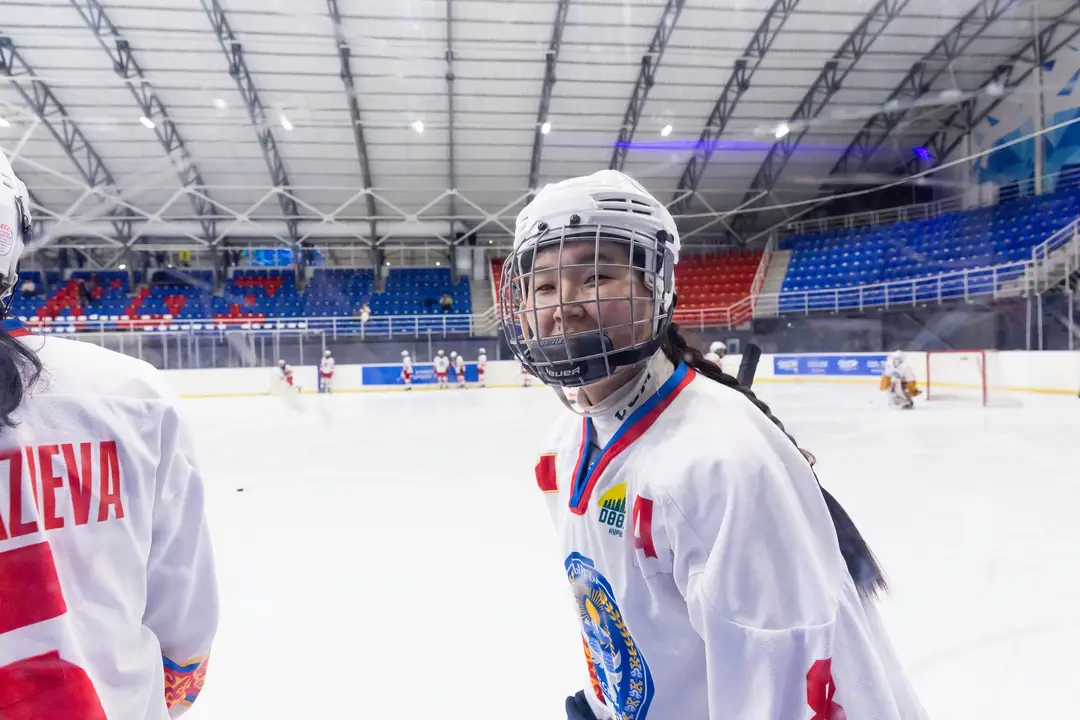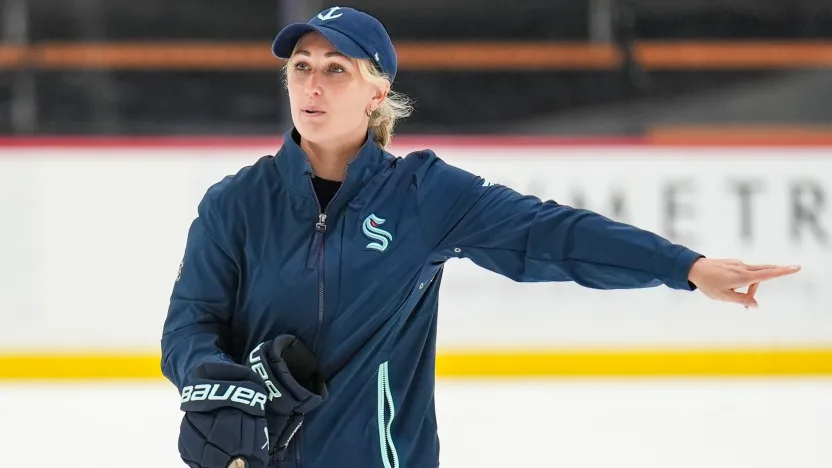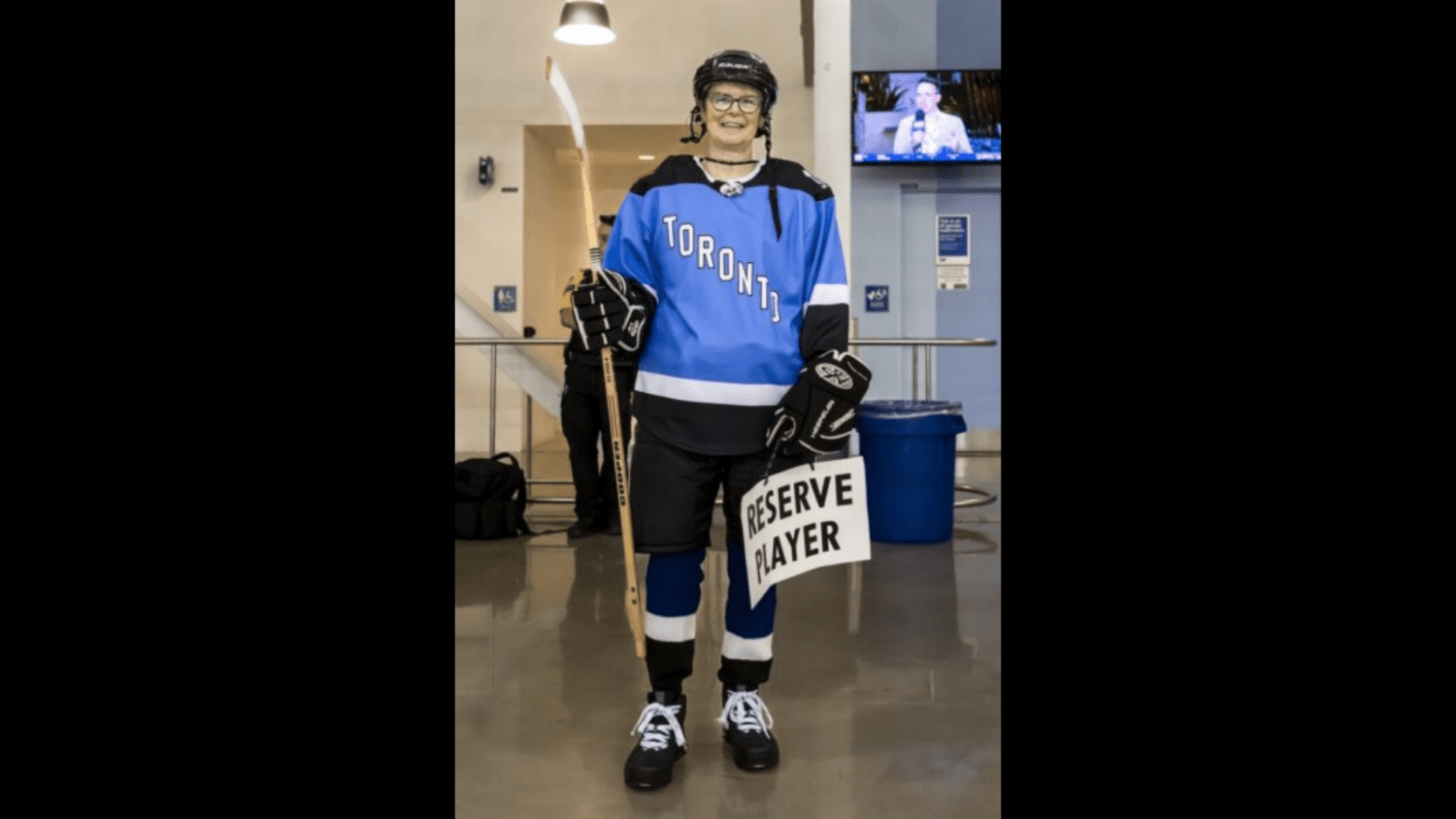Who believes improving your physical strength will improve your on-ice performance? (The majority of us raise our hands). Ok, so what do you do to improve physical strength? You may work with a specific coach, like a strength and conditioning coach, and even follow a specific workout plan.
Now, who believes improving your mental strength will improve your on-ice performance? Again, most of us raise our hands. But the subsequent question usually is more grey: “What do you practically do to improve your mental strength and become more mentally tough as an athlete?” Most of us want to be more mentally tough, but we are not always sure how to do that. Let’s unpack some characteristics of a mentally tough athlete so we can focus and try to replicate that in your game.
Athletes who are mentally tough have the ability to control their emotions and silence the voice inside their head that says something is impossible.
Control What You Can Control
There are so many things out of our control; playing time, scouts, and external stressors going on in our life. Adopt the mantra of “control what you can control” or “control the controllables.”
Mentally tough athletes control their performance to the best of their ability regardless of external forces, or things out of their control. They control what they can control. Start with your breathing. Connect with and control your deep, rhythmic breathing to slow your heart rate and mind down to increase focus and rational thinking.
Despite these uncontrollable factors that could take someone else off of their game, mentally tough athletes are determined to control it and use it, and they will still play their best. An athlete who isn’t mentally tough may give control to their opponents, teammates or coaches. This ultimately affects their performance by surrendering their power and shifting their focus. They take their eyes off of themselves and what they can control and instead focus on things they cannot control, like opinions of scouts, coaches, or teammates. Instead of losing their focus after a bad call from the referee, or a bad goal they let in, a mentally tough athlete can keep their composure, reset, and focus on the next play. They control their breathing, they control their focus (i.e. communicate with teammates, move your feet, tape-to-tape passes), and then are ready to attack with control, composure, and confidence.
Stay Committed
Mentally tough athletes stay committed. They trust the process. They are dedicated. They do not let a bad play turn into a bad shift, a bad period, bad game, or a bad string of games. They are committed to showing up and they are committed to their training. This commitment to improvement includes mental training just like strength training and working with a strength coach, mentally tough athletes work with mental coaches. Commitment can look like reading this blog and putting even one of these things into practice this week! Commitment is showing up, daily, in the little things, because they will overflow into the big things.
Commitment means following through and doing what you said you would do even after your mood has changed. For an athlete, commitment is going to bed early, waking up at 6 A.M, working with a mental skills coach, and going to the gym in the off-season, even when he or she doesn’t feel like it.
Getting to these commitments and trainings are only half of it. You not only have to show up, physically, but you have to show up mentally. You need to be all there. Mentally tough athletes live out commitment by maintaining a high level of focus and practicing as hard as they can. As one mentally tough athlete from Team USA, Brianna Decker, says “Be where your two feet are.”
Progress Over Perfection
No game, season, or performance is ever perfect. There are going to be ups and downs, wins and losses. How do you handle yourself in challenging or discouraging times? Mentally tough people, and athletes, persist. They focus on progress over perfection.
Mentally tough athletes know that playing perfect is unrealistic. Of course we aim and train to be the best we can, but we do not beat ourselves up. We mentally train to focus on progress over perfection. Celebrate the small things! I encourage athletes to build confidence in this area by writing down 1-2 things that they did well in a hockey notebook after every icetime. I also encourage them to have a progress mindset versus perfection mindset by writing down 1-2 things they want to improve on, and also writing how they can do that. For example, if you want to improve your energy levels at practice, try starting with how you prepare beforehand and then intentionally communicating with teammates on the ice to see if energy levels increase.
The Brain is like a Muscle, it can Grow. This Means YOU can Improve Your Mental Strength and Mental Toughness!
Need help building your mental toughness to increase your chances of being recruited to play in college? Book a free call with us and let us help you take your game to the next level!
Feature Image: Photo by Morgan Sarkissian on Unsplash
[adrotate group=”1″]
Related Articles
Categories
Recent Posts
[adrotate group=”2″]










